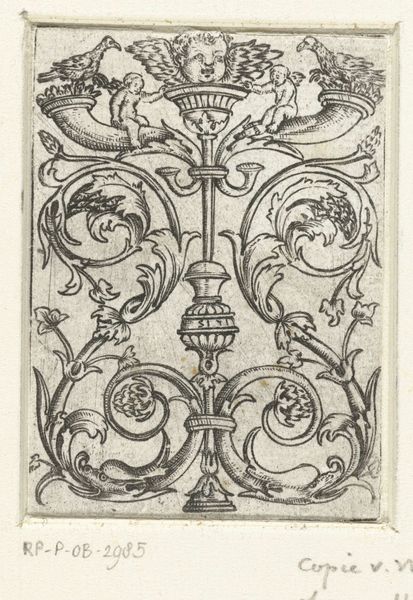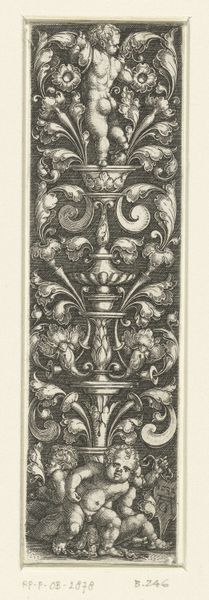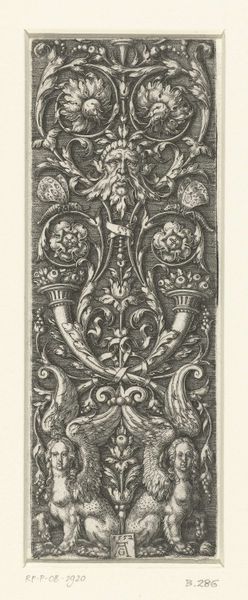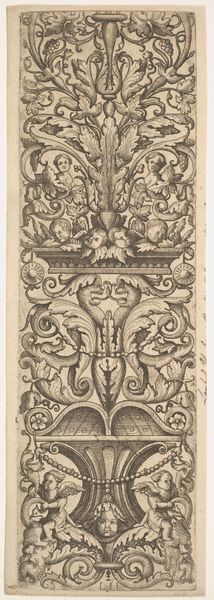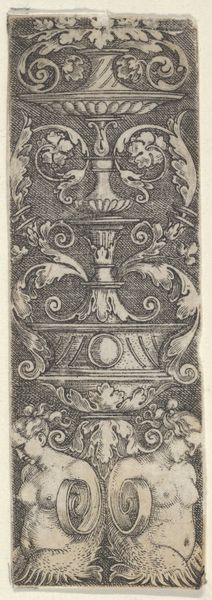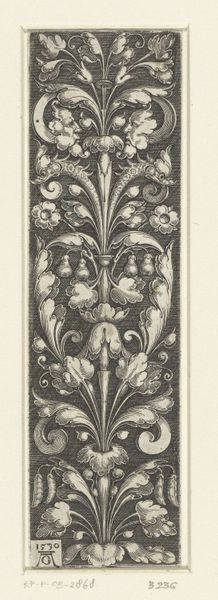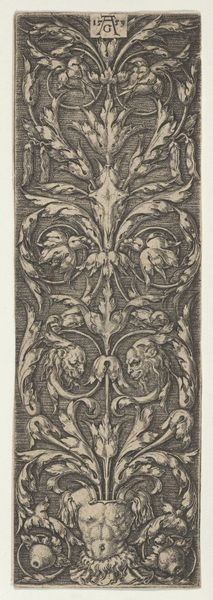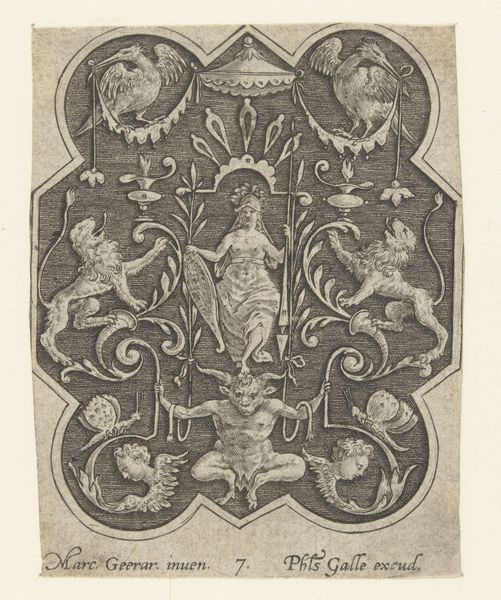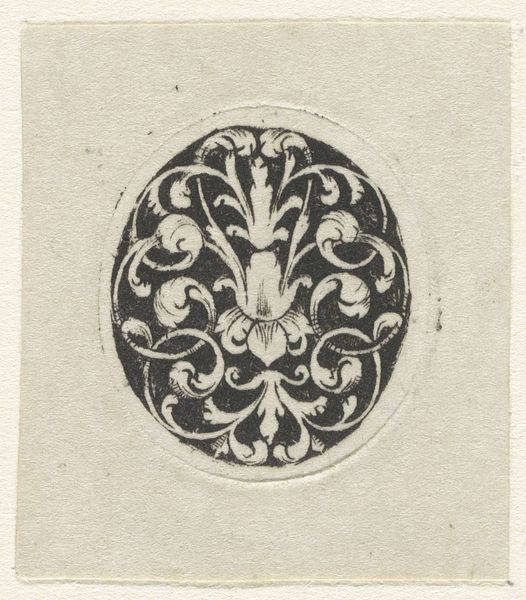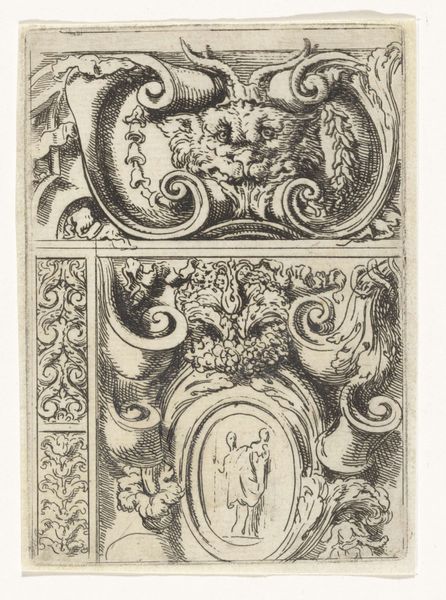
ornament, print, engraving
#
ornament
# print
#
old engraving style
#
crosshatching
#
11_renaissance
#
geometric
#
embossed
#
line
#
pen work
#
northern-renaissance
#
engraving
Dimensions: height 120 mm, width 22 mm
Copyright: Rijks Museum: Open Domain
Editor: This print, "Kandelaber met bladranken" made by Heinrich Aldegrever in 1529, is intricate! It's so detailed with all of its leaves, vessels, and this bizarre little figure. The texture looks almost embossed, even though it's a print. I wonder what role these kinds of ornaments served in the Renaissance, beyond simple aesthetics? What strikes you about this piece? Curator: Let’s think about this print not just as ornament, but as a document of Renaissance making. Consider the copperplate engraving technique – a skilled artisan meticulously cutting lines into a metal plate. These prints were reproducible, but also fragile, existing as a kind of luxury good accessible to a rising merchant class as well as wealthier patrons. Editor: So, this engraving would've been purchased or traded. Were there workshops or guilds dedicated to these ornament prints? Was Aldegrever well-known for them? Curator: Exactly. Think of the circulation: prints like this allowed the spread of artistic ideas, but also functioned as templates or patterns for other craftspeople. Goldsmiths, furniture makers - they all drew inspiration, literally and figuratively, from these sources. Aldegrever was part of a network; his prints evidence the collaborative nature of art production. Notice how this "Kandelaber" isn't simply representational; it's suggesting *how* something could be made. Editor: That’s really interesting! It almost flattens the hierarchy between 'artist' and 'artisan.' These prints are part of a larger system of making. So it wasn't just art for art's sake, it was like a user's manual for creating luxury objects? Curator: Precisely! And consider how access to such designs impacts local workshops versus artists who held greater power within particular merchant and artisanal networks. What’s "original" design versus adaptation here? Editor: This gives me a whole new perspective on ornament. Thanks! Curator: Indeed, looking closely at materials and the social networks behind this image gives us insight into 16th century commodity culture.
Comments
No comments
Be the first to comment and join the conversation on the ultimate creative platform.
